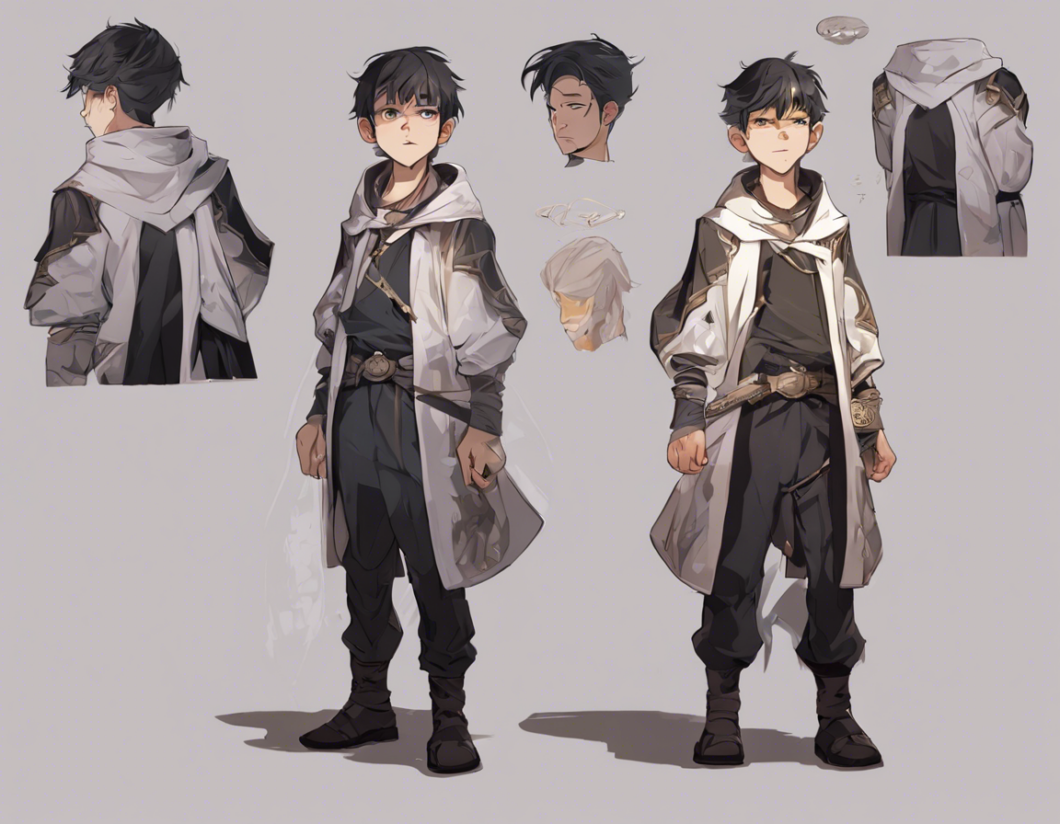Introduction
In the realm of fantasy literature and folklore, the trope of the youngest son rising to greatness is a recurring theme that has captivated audiences for generations. From fairy tales to epic sagas, the story of the underdog sibling who defies all odds to claim their rightful place as heir to a legendary dynasty is a timeless narrative that continues to inspire and enthrall readers around the world. In this article, we will explore the significance of this archetype, its origins, and its enduring appeal in contemporary storytelling.
The Archetype of the Youngest Son
The archetype of the youngest son as the chosen heir is deeply rooted in folklore, mythology, and literary traditions. In many cultures, primogeniture dictates that the eldest son inherits the family fortune and title, leaving younger siblings with little more than scraps. However, in tales where the youngest son takes center stage, this conventional hierarchy is subverted, and the underdog emerges as the unexpected hero.
Origins of the Youngest Son Trope
The motif of the youngest son as the hero can be traced back to ancient myths and legends. In Greek mythology, figures like Theseus and Perseus, who overcame great trials to claim their birthright, embody the spirit of the youngest son archetype. Similarly, in Norse mythology, the god Loki, often depicted as a trickster and outsider, plays a pivotal role in shaping the fate of the gods and humans alike.
Characteristics of the Youngest Son
One of the key attributes of the youngest son archetype is resilience in the face of adversity. Unlike their older siblings who may rely on tradition or brute strength, the youngest son often harnesses wit, ingenuity, and courage to achieve their goals. Whether it is outsmarting a cunning foe or unlocking a magical secret, the youngest son proves that true heroism knows no birth order.
Themes of Legacy and Destiny
Central to the narrative of the youngest son is the theme of legacy and destiny. While the eldest son may inherit power by default, the youngest son must earn their place through deeds and choices that define their character. Whether it is a quest for a lost artifact, a battle against ancient evil, or a struggle for redemption, the youngest son must confront their destiny with courage and conviction.
The Modern Youngest Son
In contemporary literature and popular culture, the archetype of the youngest son continues to resonate with audiences of all ages. From J.K. Rowling’s Harry Potter to George R.R. Martin’s Jon Snow, modern storytellers have reimagined the classic trope in fresh and compelling ways. Through diverse characters and complex narratives, these authors explore the enduring appeal of the youngest son as a symbol of hope, resilience, and the power of the human spirit.
Conclusion
In conclusion, the story of the youngest son as heir to a magical dynasty reflects our timeless fascination with underdogs, heroes, and the enduring power of myth and legend. By challenging conventions, defying expectations, and embracing their true destiny, the youngest son embodies the triumph of the human spirit against all odds. Whether in ancient tales or modern epics, the youngest son continues to inspire and remind us that greatness can come from the most unexpected of places.
FAQs
Q: Why is the youngest son trope so popular in storytelling?
A: The youngest son archetype resonates with audiences because it embodies themes of hope, resilience, and the power of individual agency to shape one’s destiny.
Q: What sets the youngest son apart from other hero archetypes?
A: Unlike traditional heroes who rely on strength or authority, the youngest son often achieves greatness through wit, cunning, and moral courage.
Q: Can female characters also embody the youngest son trope?
A: Absolutely! The archetype of the youngest son is not limited by gender and can apply to any character who defies expectations and overcomes obstacles to claim their rightful place.
Q: How has the youngest son trope evolved in modern storytelling?
A: Modern authors have taken the youngest son trope and subverted it, creating complex characters who challenge traditional narratives of heroism and inheritance.
Q: What life lessons can we learn from stories featuring the youngest son trope?
A: Stories of the youngest son teach us about the importance of perseverance, integrity, and the belief that anyone, regardless of birth order, can rise to greatness through courage and determination.

